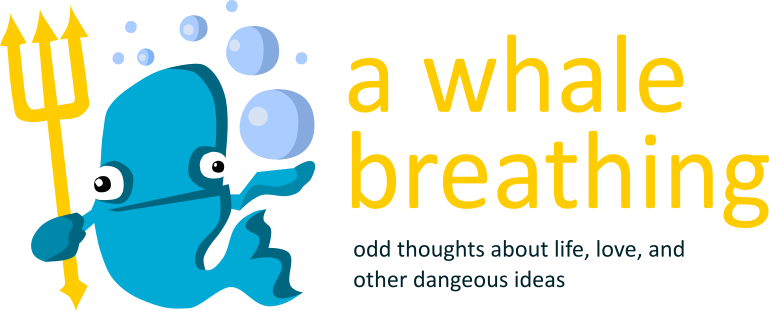Today I did something that everyone does from time to time: ask Google what's wrong with me. My symptoms? Contentment in being alone. The answer that I found made me incredibly happy.
I am a loner.
What is a loner?
A loner is that person who either avoids human interaction or just doesn't seek it out.
Why would a person choose that life?
Possibly just because it's what that person likes, or because the person is shy, religious in some way, or mystical. The person might also just have a personal philosophy that doesn't jive with other people's personal philosophies. (And don't forget: we all have one.) Loners might also seek solitude to avoid the pain and anxiety of social interaction. But the bottom line is: a loner is habitually alone.
If you are feeling sorry for the person being described, you are probably not meant to be a loner.
When I found the Wikipedia article on
loners, I was overjoyed.
When did I become a loner?
I became a loner in January, 2015 while I was taking a metal casting class. At the time, I was dating someone who wasn't good for me. To avoid the stress of being around her, I isolated myself in the foundry, working 10 to 12 hours every day on my art. When I wasn't making art in the foundry, I painted in my room.
While at first I was seeking solitude to avoid my girlfriend, the habit lasted longer than my relationship with her. In spending so much time alone, I discovered that solitude had amazing healing powers.
For the second semester of my senior year, I spent more quality time alone than I ever had before in my life. I discovered that I could spend entire days or weekends alone and not feel like I had missed anything. And now, almost a year later, I still feel content to be myself by myself.
What does solitude do for me?
Pacing. We all have different heartbeats, and nobody pressures anyone to make their heart beat faster. Why then do we allow ourselves to feel pressured to work faster or be more productive than we know is good for us? Solitude allows me to live at my own pace, by my own rules, in relative serenity.
Quiet. When there is no one else, the volume knob of life is between my fingers.
Peace. To be alone is to be free from the drama that haunts people's everyday lives. While I can still support my friends over the phone, I am safely removed from the suffering by physical distance. As for any emotional problems I have, each of them is an opportunity to practice some more independent self-care.
Unity. They say you are the average of the five people you spend the most time with. That's absolutely correct, and in spending more time with myself, I become more like myself. That's a great thing.
If this seems like vain navel-gazing to you, you're correct. According to an old book I used to read, "All is vanity." Whether you're looking inward at your navel to please yourself, or outward at other people's navels to please them, or even upward to please God's holy navel, it's all vain navel-gazing.
Let that sink in.
Does solitude have drawbacks?
Yes. On a very practical level, you start to lose habits that were ingrained in you pretty early like combing your hair or wearing deodorant. Then, on going out with friends after being alone for a while, you have to remind yourself to do things that you maybe did automatically for 22 years of your life. However, this "drawback" also comes with the added bonus of being far less concerned with little things like how one's hair looks.
One drawback for social people attempting to be loners would obviously be the lack of people, but for happy loners this is not the case. I am fortunate to have good friends to phone every once in a while. Those interactions are perfect for loners like me because they allow loners to continue being alone while at the same time spending time with another person. All of the benefits of friendship, with all the convenience of solitude. I should write commercials.
Are you a loner?
Are you a part of the anti-tribe? Do you feel like you have something to bond over with a bunch of people who are OK never meeting you? Now that you know that loners are a thing, do you finally feel like you belong? Even though you don't?
Tell me what it's like for you to be alone (
acuddlediva@gmail.com).

